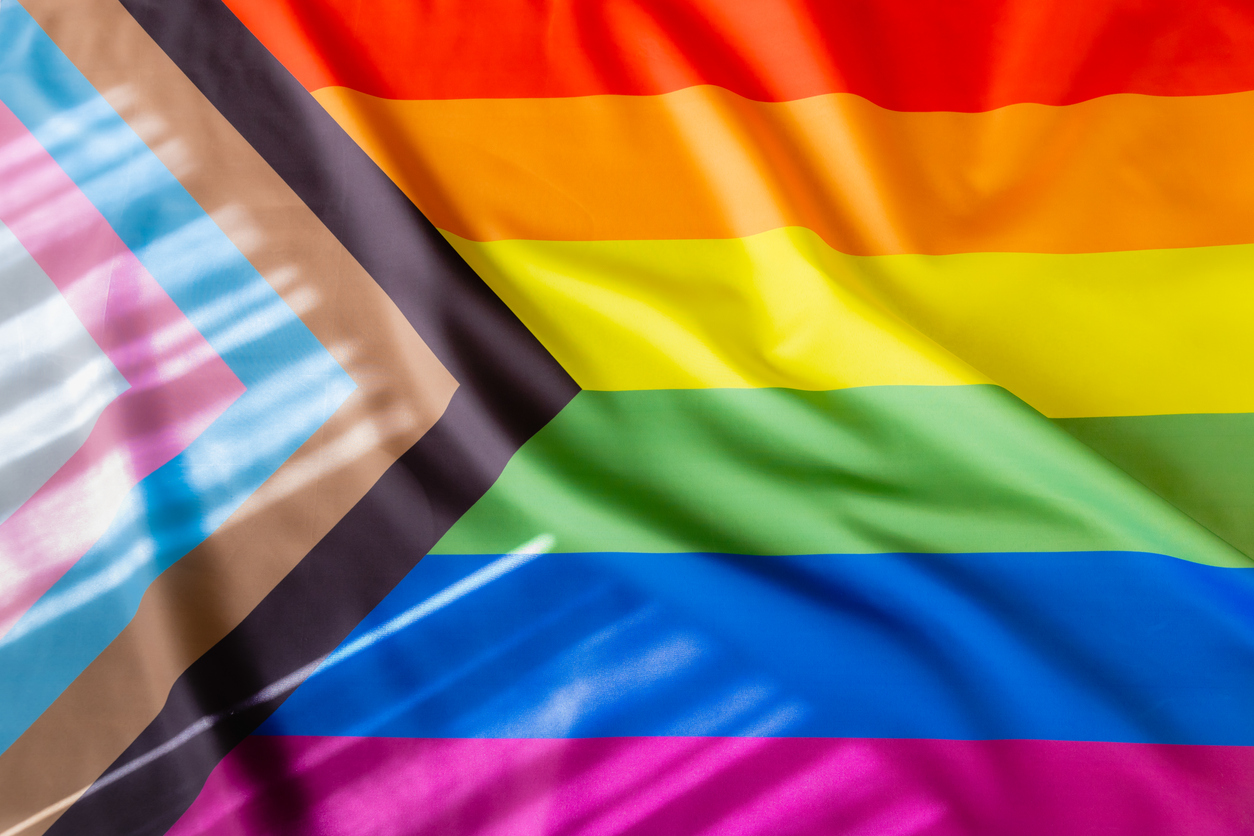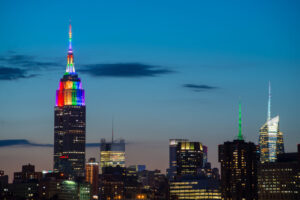Pride 2024: What companies are planning after 2023 backlash
Committing to Pride isn’t just about joining in the celebration, but providing meaningful support for LGBTQ+ communities.

Pride Month celebrations have become more and more mainstream over the last several decades, to the point that companies have been routinely accused of rainbow washing just to get a chance to participate in these major events.
Then came 2023.
Anti-trans activists criticized Target for selling a tuck-friendly bathing suit in honor of Pride, leading to boycotts, physical confrontations with store associates and even threats. They eventually pulled several items from the collection.
And while not directly tied to Pride month, Bud Light’s ill-fated partnership with trans influencer Dylan Mulvaney cast a pall over festivities and left some brands in a battle between anti- and pro-LGBTQ forces, each making opposing demands.
One year later, how have these controversies impacted planned Pride activations and partnerships by major brands and companies?
Based on data and interviews with industry professionals, we aren’t likely to see Pride participation significantly dialed back this year.
Data from corporate executives and Fortune 500 leaders gathered by Gravity Research indicates that 78% of companies are not planning changes to their Pride strategy this year. Thirteen percent were unsure, and only 9% are definitely planning changes.
By far, the industry most considering Pride tweaks is the consumer goods industry, with 30% changing their strategy this year — likely after seeing what befell fellow CG companies like Target and Bud Light.
Target announced that it will limit its Pride merchandise this year to home goods and adult clothing, and it will only be available in about half its stores, based on past sales, and online.
Still, most remain undaunted.
“I’m very optimistic about Pride this year,” said Gerry Rodriguez, senior vice president of brand purpose at Edelman. “What we’re seeing is kind of a trend towards more engagement, more visibility, more authentic engagement and visibility.”
On the brand side, Jonathan Pinkerton, senior social media manager for Hyatt and chair of employee resource group HyPride LGBTQ+ Network, said his company finds continuing their longstanding commitment to Pride and the LGBTQ+ community simply “the right thing to do.”
“We also recognize it as our responsibility to create inclusive environments for our colleagues, guests, and customers feel a sense of belonging,” he added.
The business case for Pride
According to data from Gallup, 7.6% of the U.S. population now identifies as a member of the LGBTQ+ community. That’s roughly on par with the population of Asian Americans. And the younger you go, the more people you find in the gay community: More than 1 in 5 members of Gen Z identify as LGBTQ+, along with nearly 10% of Millennials.
Those are numbers that are hard to ignore.
“What does that mean for your future consumer, your future workforce?” Rodriguez mused. “If you’re thinking ahead, those things should be part of the equation.”
“LGBTQ folks and young people are often the keepers of our culture,” said Caitlin Copple, founding partner and CEO of Full Swing Public Relations. “And I think if you want to be culturally relevant and be able to appeal to younger demographics, doubling down on divisive, boogeyman social issues is probably not the way to grow your business in 2024.”
Pinkerton said that LGBTQ+ consumers make a major impact today, pointing to data from Booking.com showing that 69% of queer travelers are more likely to choose to do business with airlines and brands that have inclusive policies.
“So not only is it the right decision, data shows that when you offer a place of acceptance and celebration, people will spend more,” Pinkerton said.
But there are those who disagree with LGBTQ+ affirming policies and they have money to spend too. While numbers on how many Americans participated in anti-LGBTQ+ boycotts are hard to come by, it was enough to do serious damage to the stock prices and earnings of both Target and Bud Light’s parent company.
Rodriguez also acknowledged the complex political environment, where the Supreme Court decision on affirmative action, activist investors and general backlash against ESG and DE&I all intersect. But at the end of the day, Rodriguez says, you have to understand what your company stands for.
“If there are lessons to be learned from last year, it’s, what are your values? And how are you standing in your values to authentically engage? That’s always the safest bet and the right way to connect with the community that you’re trying to reach and defend your actions.”
Copple, whose firm specializes in serving women, LGBTQ+ and BIPOC leaders, said dialogue with those who disagree is important.
“I’m all for having conversations with people that don’t agree with you,” Copple said. “I think there’s a time and a place for all of it. I also think it’s really important to have a line in the sand of what you will and won’t do as a brand and as a human.”
Meaningful measures and employee support
All the experts we spoke to agreed that internal policies and employee resource groups are all a key part of engaging authentically in Pride month activities — or in LGBTQ+ issues all year round.
Copple said that health insurance, gender-affirming care, parental leave and pay equity should be topics of discussion alongside rainbows and parades.
“Companies should approach Pride as more than just a party, but really as a challenge to make sure that their workplace is equitable all year long,” Copple said.
Rodriguez noted the importance of activating employees to serve as advocates. Often in his discussion with clients, they’ll begin by talking about how they’re tapping employees on LGBTQ+ issues.
“It plays a big part of the equation for a lot of our conversations, like a good starting point. Are you consulting with your employees, ERGs? How are you bringing them to the conversations as well to get that that perspective?”
Quantitative and qualitative data from Gravity Research indicates that organizations are leaning more on ERGs to aid in their Pride efforts – and are also seeing more demands for representation.
When questioned about their plans for Pride this year, one anonymous leader responded: “Currently our plans are consistent with what we have done in the past: [allowing] our LGBTQ+ affinity group to lead programming.”
Pride is year-round
Pride is well known for its parades, parties and other public displays of queer culture and acceptance. And many organizations continue to concentrate their Pride activations in these areas.
Pinkerton pointed to Hyatt’s support of various Pride celebrations around the world — and reminded us that not all Pride celebrations take place in June. For instance, both Atlanta and Orlando celebrate in October, when the weather isn’t quite so steamy. Whenever they happen, Hyatt will be out in full force at parades or even driving a bus around the street of Chicago. Hyatt also offers discount codes and packages for Pride weekends to offer complete experiences for attendees.
But that alone isn’t enough.
“We also want to make sure that we’re not just going after an event,” he said. “It’s a part of everyday culture of what Hyatt is. So not only do we have the events, but we also host meetings and events that support the work of LGBTQ+ organizations.
Pride events have also become a target of violent threats in recent years. Copple recalled carefully planning a trip to Boise Pride with her 7-year-old to avoid threatening counter-protestors.
These are the kinds of contingencies any corporation involved with a Pride event should consider.
“Having a crisis plan in place is really important,” Copple said. “Because if there was to be some kind of emergency situation at a pride in your business as a major sponsor, you would want to have that kind of response schemed out in advance, unfortunately.” She added that it’s important to have strong working relationships with both the Pride organizers and local police, just in case.
Rodriguez likes to remind clients that “ally is a verb” — an action organizations have to take.
“Clients that I’m working with a lot, they’re focusing on local and making sure that their employees feel seen and heard. They’re showing up where they’ve shown before and understanding that allyship is more than just reading the chapter saying the words and changing your logo to a rainbow.”
Instead, he says there’s an increasing focus on LGTBQ+ support and activity far beyond a single month.
“Pride is 365 days a year, and the big companies are really starting to pay attention to that,” he said. “So you’re seeing companies look to expand beyond pride and keep up LGBTQ activism and outreach all year long.”
Allison Carter is editor-in-chief of PR Daily. Follow her on Twitter or LinkedIn.







